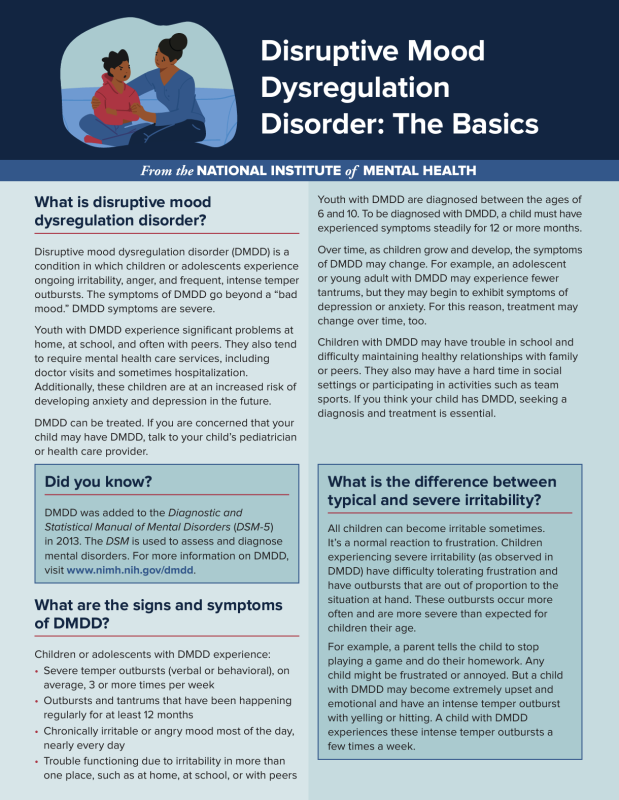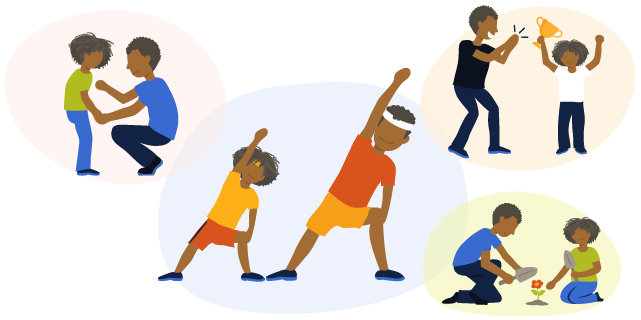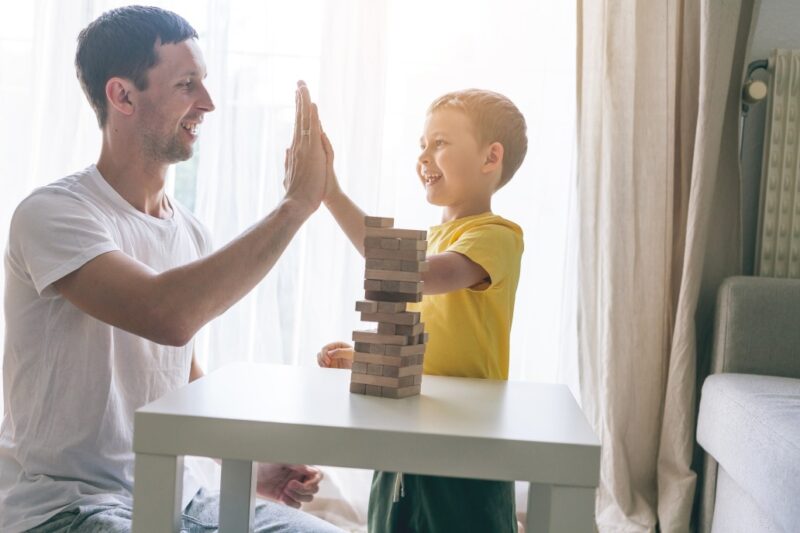
How to Help Kids Understand and Manage Their Emotions
Babies cry, toddlers have tantrums. At some point, parents expect their kids to start managing their feelings without epic meltdowns. Read more >>
Request an Appointment
English: 650.688.3625
Medi-Cal: 650.688.3650

How to Help Kids Understand and Manage Their Emotions
Babies cry, toddlers have tantrums. At some point, parents expect their kids to start managing their feelings without epic meltdowns. Read more >>

Disruptive Mood Dysregulation Disorder: The Basics [downloadable]
Disruptive mood dysregulation disorder (DMDD) is a condition in which children or adolescents experience ongoing irritability, anger, and frequent, intense temper outbursts. The symptoms of DMDD go beyond a “bad mood.” DMDD symptoms are severe. Youth who have DMDD experience Read more >>

Parenting Tips for ADHD: Do’s and Don’ts
Raising a child with ADHD isn’t like traditional childrearing. Normal rule-making and household routines can become almost impossible, depending on the type and severity of your child’s symptoms, so you’ll need to adopt different approaches. Read more >>
ADHD 101 – Why Kids With ADHD Need Different Parenting Strategies
The “usual” parenting strategies are often less effective for children with ADHD. In this video Erin Gonzales, PhD, a psychologist from the PEARL Clinic at Seattle Children’s Hospital, discusses common challenges and changes parents and caregivers can make to help Read more >>

Helping to Manage a Child’s Emotions
Emotional regulation is the ability to control our emotional state so that it matches the situation at-hand. It is not something we are born knowing how to do, but rather we learn over time. How can we teach our kids Read more >>

Why Emotional Self-Regulation Is Important and How to Do It
Emotional self-regulation refers to a person’s ability to manage their emotions and impulses. It is a skill that people learn and develop throughout childhood and adolescence and into adulthood, and it is an important part of overall mental and physical Read more >>

The 5-Minute Daily Playtime Ritual That Can Get Your Kids to Listen Better
Sometimes kids listen to the instructions — and sometimes they don’t. And when they don’t, that can be very frustrating for parents. Read more >>

Talking To Kids About Fear And Violence
Acts of violence in schools and other public places have stunned the nation. Knowing how to talk with your child about violence will play an important role in easing fear and anxieties about their personal safety in these tenuous times Read more >>

Behavior or Conduct Problems in Children
Children sometimes argue, are aggressive, or act angry or defiant around adults. A behavior disorder may be diagnosed when these disruptive behaviors are uncommon for the child’s age at the time, persist over time, or are severe. Read more >>

Over two-thirds of the 11-17 year olds surveyed by Mental Health America felt stressed out about loneliness. Read more >>
English: 650.326.5530 | Español: 650.688.3650 | Fax: 650.688.3669
English: 650.326.5530
Español: 650.688.3650
Fax: 650.688.3669
English: 650.668.3625 | Español: 650.688.3650 | careteam@testing.chconline.org
English: 650.668.3625
Español: 650.688.3650
careteam@testing.chconline.org
© 2024 Children’s Health Council. All rights reserved.
CHC Palo Alto: 650 Clark Way, Palo Alto, CA 94304 | 650.326.5530
CHC South Bay: 2280 Kenwood Avenue, San Jose, CA 95128 | 408.831.7512
CHC Ravenswood: 1765 E Bayshore Rd, East Palo Alto, CA 94303 | 650.702.2487
CHC Palo Alto:
650 Clark Way, Palo Alto, CA 94304
650.326.5530
CHC South Bay:
2280 Kenwood Avenue, San Jose, CA 95128
408.831.7512
CHC Ravenswood:
1765 E Bayshore Rd, East Palo Alto, CA 94303
650.702.2487